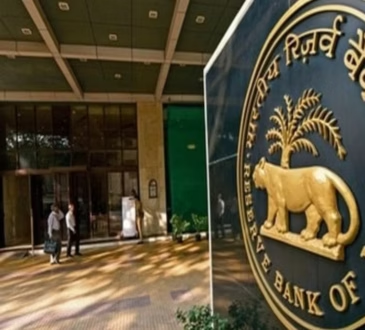Another step to de-dollarisation? Why RBI wants local banks to make loans to overseas borrowers in Indian currency – Firstpost
The Reserve Bank of India (RBI) wants Indian banks to give loans to foreigners in rupees .
The RBI has approached the Centre asking for permission to do so.
The central bank’s move is the latest step towards the internationalisation of the rupee.
But what happened? Why is the RBI making this move?
Let’s take a closer look
What happened?
The RBI wants to allow domestic banks to make loans to overseas borrowers in Indian currency.
This would be a historic first for the nation.
The central bank has already asked the government to allow domestic banks to do so, sources have said.
Indian banks usually give loans to in overseas borrowers in foreign currencies.
Such loans are mainly given to Indian firms operating overseas.
The proposal was sent to the Finance Ministry last month.
It suggests beginning with neighbours such as Bangladesh Bhutan, Sri Lanka and Nepal.
The data shows that 90 per cent of India’s exports in South Asia are to the aforementioned nations.
Sources have said that if this is successful, this rupee-denominated lending could be extended to cross border transactions around the world.
The RBI will open the foreign loans in rupees only for the purpose of trade, the sources said.
Why is RBI making this move?
The central bank is doing so to increase the use and acceptance of the Indian rupee in trade settlements.
“Efforts are underway towards internationalisation of the Indian Rupee (INR) through settlement of bilateral trade in local currency,” the central bank said in its report last year as per Outlook Business.
As per Financial Express, India has been trying to encourage the settlement of transaction in rupees.
The central bank in January signed a Memorandum of Understanding with the central banks of Indonesia, Maldives, and the United Arab Emirates to increase the transactions in the local currencies.
Currently, rupee liquidity is provided in other countries only through a limited number of government-backed credit lines or bilateral currency swap arrangements.
“The objective is to reduce dependence on such arrangements and instead allow commercial banks to provide rupee liquidity on market terms,” the first source said, citing a communication from the central bank in April.
The second source said enabling easier access to rupee-denominated loans will help facilitate trade settlements in rupees and reduce exposure to foreign exchange volatility.
The government has received several requests from financial institutions to support strategic projects through rupee-denominated financing, the second source said.
India’s experience with local currency pacts with the United Arab Emirates, Indonesia, and the Maldives, as well as Special Rupee Vostro Accounts used for trade with Sri Lanka and Bangladesh, has underscored the need to deepen the availability of rupee liquidity, the source said.
Such accounts are held by domestic banks on behalf of foreign banks, as per Financial Express.
If implemented, the policy would mark a major step toward integrating the rupee into the global financial system, positioning it as a more widely accepted currency for international trade and investment, the second source added.
The RBI, as part of a wider strategy, recently permitted the opening of rupee accounts for non-residents outside India.
Earlier this month, Reuters reported the RBI has sought government’s approval to remove the cap on foreign banks with so-called vostro accounts buying short-term sovereign debt, to boost rupee-denominated investment and trade.
Another blow to dollar?
The development comes as more and more countries across the world, including India, are trying to de-dollarise – essentially pushing back against the American currency’s hegemony.
The dollar is currently the world’s reserve currency – and has been since the Bretton Woods Agreement in 1944.
This means that contracts for commodities such as crude oil and natural gas are almost always priced in dollars.
This increases Washington’s economic hold over the world even more and gives it unprecedented influence when it comes to terms of rewarding or punishing people.
A case in point here is Russia – which found itself barred from the West-led SWIFT international payment system in the aftermath of Vladimir Putin’s invasion of Ukraine in February 2022.
More and more countries are now trying to settle transactions in their native currencies.
Brazil, Russia, India, China and South Africa (Brics) have also been working on a creating a new currency to facilitate trade.
With inputs from agencies




